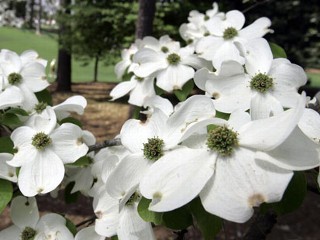Health Matters: Seasonal Allergies
Don’t let seasonal allergies ruin your spring

Sneezing, itchy eyes and a runny nose? Unfortunately, to many they’re the signs of spring. While cars aren’t yet covered with yellow dust and few leaves have begun to sprout on the trees, the pollen counts are starting to rise. Allergies affect 50 million people every year, according to the Asthma and Allergy Foundation of America (AAFA), and many feel they have no choice but to suffer silently. But there are ways to make spring more enjoyable, even if you’re allergic to the season.
Allergic rhinitis, also known as hay fever or seasonal allergies, is the most common type of allergy, according to the AAFA. Seasonal allergies are triggered by otherwise harmless things that we may come in contact with or inhale, such as tree pollen, mold spores, and pet dander. Symptoms can include a scratchy throat, a runny nose, sneezing, and nasal congestion.
Frédéric Little, a School of Medicine assistant professor of medicine, who is on the staff of the Pulmonary, Allergy, and Critical Care Centers at Boston Medical Center, says that dealing with hay fever is particularly challenging, because it’s nearly impossible to avoid pollen exposure since you can’t avoid going outside.
You may be fooled into dismissing allergies as a common cold, because the initial symptoms of the two are very similar. “The thing that would separate allergies from a cold is that if you’re suffering from allergies, the symptoms won’t go away in 5 to 10 days, which is how long a cold usually lasts,” says Little. “People who are allergic continue to have symptoms throughout the pollen season.” He recommends seeing your doctor for an allergen skin test to find out for sure what you are allergic to.Once you know the source of your allergies, it may be time to visit the MD again.
If your symptoms are mild, you can take over-the-counter antihistamines, such as Benadryl, Zyrtec, or Claritin. If you have persistent symptoms that affect your sense of smell or ability to breathe through your nose, your allergies might need to be managed with prescription drugs. If you know that you suffer from allergies every year, it’s better to treat them ahead of time by getting a protective level of the anti-inflammatory steroids in the nose before the spring pollen counts get high, Little says.
Other tips for allergy sufferers:
- When you’re inside, try to keep windows closed
- Try to stay indoors during the day if your allergies are acute
- When the weather gets warmer, put on air conditioning instead of opening the windows — air conditioners not only keep the air cool, they filter and dehumidify the air
- Get HEPA filters for your vacuum cleaner; these filters rid your apartment of allergens with a smaller filter that is able to capture smaller particles instead of spreading dust around
- Avoid mold spores by fixing leaky faucets, which allow mold to grow
- Keep your car windows closed while driving
- Shower after being outside to wash away pollen on skin and hair.
Amy Laskowski can be reached at amlaskow@bu.edu.

Comments & Discussion
Boston University moderates comments to facilitate an informed, substantive, civil conversation. Abusive, profane, self-promotional, misleading, incoherent or off-topic comments will be rejected. Moderators are staffed during regular business hours (EST) and can only accept comments written in English. Statistics or facts must include a citation or a link to the citation.